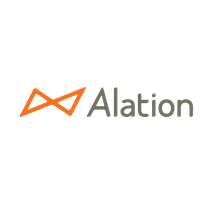
Alation Introduces Document Hubs for Unified Data Access and Governance

The way organizations manage and share data can make or break their ability to collaborate and make informed decisions. Inconsistent data definitions and fragmented documentation often create barriers between teams, limiting efficiency and trust in decision-making.
Alation, a data intelligence company, is aiming to address this challenge with the release of Document Hubs – a centralized platform designed to simplify data discovery and foster collaboration within organizations. The platform is designed to align teams on a shared data language, providing consistent access to essential documentation like glossaries, data products, and AI insights.
In the press release, Alation referenced a 2023 McKinsey study revealing that 80% of businesses struggle with isolated data systems, each using unique standards and practices. This disconnect often hampers data accessibility and consistency, stifling innovation and collaboration.
As organizations grow, these challenges worsen. Data becomes scattered, definitions become disconnected, and unclear documentation makes it increasingly difficult to align teams and extract meaningful insights.
 According to Alation, Documents Hubs offers a unified solution for businesses to organize and access knowledge and data semantics specific to their organization’s needs. It simplifies access to role-specific information, eliminating the need to search across multiple systems.
According to Alation, Documents Hubs offers a unified solution for businesses to organize and access knowledge and data semantics specific to their organization’s needs. It simplifies access to role-specific information, eliminating the need to search across multiple systems.
“Alation is transforming data from a fragmented resource into a cohesive, strategic asset,” said Gianthomas Volpe, Senior Director, Product Management at Alation. “As the foundational knowledge semantic layer, context and understanding across departments is captured in a single place, creating a common language that drives clarity and trust.”
“Document Hubs enable teams to align on terms, link metrics to business processes, and bring visibility to complex initiatives like AI, transforming data-driven decisions from a black box to a powerful advantage. With Document Hubs, decision-makers gain access to context-rich data, turning isolated insights into measurable business impact for the whole organization.”
With Document Hubs users can create their own documentation types, such as business processes, project documentation, policies, metric definitions, or anything else that suits their needs. Users can even create multiple document hubs for different purposes. This means they have documents tailored to specific object types, rather than relying on generic formats.
Document Hubs include the Glossary Hub as its default hub, providing a centralized space for managing business term definitions. This new feature will replace Articles, but for now, both tools remain in the catalog.
The platform organizes documentation in a structured hierarchy, enabling users to easily find specific information. Nested folders and sub-documents improve content management. Documents Hubs connect data assets, making it easier for users to find relevant information. Custom templates, metadata, and tags improve searchability, supporting faster, data-driven decisions.
For Burns & McDonnell, Alation’s Document Hubs serves as a knowledge semantic lawyer for data. The Kansas City-based engineering consultancy has used the platform to centralize critical documentation, streamline data management, and enhance accessibility for teams across the organization.
“Previously, our data was scattered across systems and relied heavily on collective knowledge, making it challenging to link business processes with data applications,” shared Sudheen Karri, Data Governance Program Manager at Burns & McDonnell.
“Now, with a centralized hub, key applications and data processes are documented and accessible in one place. We’ve customized our homepage to feature Document Hubs with nested folders, guiding users to the most valuable information and helping everyone use the catalog effectively.”
In October this year, Alation turned to GenAI to automate data governance tasks. Built on Alation’s metadata cataloging system, the AI governance solutions helps organizations track data used in AI training and inference, monitor data flows, and ensure compliance with emerging regulations.
The release of Document Hubs builds on this momentum, expanding Alation’s governance capabilities to include comprehensive knowledge and semantic management across the enterprise.
Related Items
A Tale of Two Cities: Data Fabric and Data Mesh
Is the Universal Semantic Layer the Next Big Data Battleground?
AtScale Claims Text-to-SQL Breakthrough with Semantic Layer




























